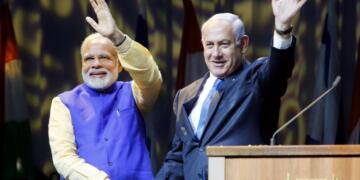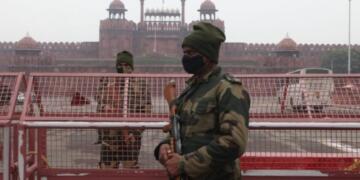Kulbhushan Jadhav case
On 17th July, in a 15-1 verdict, the International Court of Justice (ICJ) has granted India consular access to Kulbhushan Sudhir Jadhav and has also maintained the stay on his execution. Kulbhushan Jadhav is a retired Indian naval officer who had been sentenced to death by the military court in Pakistan on grounds of espionage.
While the verdict is definitely a diplomatic victory for India, and a source of embarrassment for Pakistan, the citizens are left wondering, what next? Even though Jadhav isn’t returning home at the moment, how is the verdict relevant?
The case
On 3rd March 2016, Kulbhushan Jadhav was arrested in Balochistan, after being linked with terrorist attacks in Pakistan. The Pakistani government claimed that he was a serving Indian officer in the navy and was involved with the Indian intelligence agency, RAW. However, the Indian government maintained that he was a former naval officer, presently retired with no links to the government and had been kidnapped in Iran. After conducting a 3 ½ month secret trial, Kulbhushan Jadhav was sentenced to death in the Pakistani military court on April 10, 2017.
Issues
The investigation and the trial were fraught with irregularities. Pakistan denied extradition to India and Kulbhushan Jadhav was even denied consular access. Former Pakistan Prime Minister’s Adviser on Foreign Affairs, Sartaj Aziz, admitted that Pakistan had “insufficient evidence” on the alleged Indian spy. Yet Pakistan chose to go ahead with the execution. The sentencing was based on a “confessional” which was extracted from Jadhav in captivity. Needless to say, it was without any proper legal or consular representation. Pakistan maintained that Jadhav was allowed legal representation as per the laws in the country. However, this was effectively negated when the Lahore High Court Bar Association announced that it would act against any lawyer who extended services to Jadhav. Hence it is unlikely that Jadhav got proper representation.
Vienna Convention
The rule of the Vienna Convention on consular relations, 1963 dictate the established consular norms and protocol between 2 nations, to which both, India and Pakistan are signatory.
Article 36 (1)(b) if he (national of the sending state) so requests, the competent authorities of the receiving State shall, without delay, inform the consular post of the sending State if, within its consular district, a national of that State is arrested or committed to prison or to custody pending trial or is detained in any other manner. Any communication addressed to the consular post by the person arrested, in prison, custody or detention shall be forwarded by the said authorities without delay. The said authorities shall inform the person concerned without delay of his rights under this subparagraph;
(c) consular officers shall have the right to visit a national of the sending State who is in prison, custody or detention, to converse and correspond with him and to arrange for his legal representation. They shall also have the right to visit any national of the sending State who is in prison, custody or detention in their district in pursuance of a judgement. Nevertheless, consular officers shall refrain from taking action on behalf of a national who is in prison, custody or detention if he expressly opposes such action.
In accordance with Article 36 of the Vienna Convention, Pakistan was supposed to:
- Inform India immediately of Jadhav’s arrest
- Inform Jadhav of his rights under the article
- Grant consular access to him
- Enable consular officers to arrange for proper legal representation
Unfortunately, Pakistan failed on all of these fronts. Not only was Jadhav unaware of his rights, but India was denied consular access despite multiple requests. Also, India was made aware of the arrest 3 weeks after the arrest which was completely against the rights of the accused.
ICJ trial and judgment
After Pakistan sentenced Kulbhushan Jadhav to death, India moved the ICJ. Through the court, India sought the following reliefs:
- Immediate suspension of the sentence of death awarded to the accused
- Restitution in integrum (sending Jadhav home)
- Restraining Pakistan from giving effect to the sentence awarded by the military court
- Either Pakistan should annul the decision of the military court or the ICJ should declare the decision illegal
Pakistan tried its best to quash the case. They first tried to question the admissibility of India’s application, which was thwarted by the court. Then Pakistan, argued by Khawar Qureshi, tried to claim that Jadhav’s nationality wasn’t established beyond all reasonable doubts and hence the application is inapplicable. This was ironic, considering the fact that Pakistan themselves had referred to Jadhav as Indian in their submissions and hence the objection was denied by the court. Pakistan put up a third objection, claiming that since India’s conduct had been unlawful, they couldn’t get respite under the court. This was effectively rejected by the court as the ICJ failed to understand how India’s alleged misconduct had interfered in Pakistan providing consular access to the accused.
Amidst the arguments put forward by Khawar Qureshi, Pakistan had attempted to shirk from its responsibility of following the Vienna Convention, which was suitably rejected by the court.
After a 4 day public hearing in February 2019, ICJ ruled on 17th July that Pakistan has violated the provisions of article 36 of the Vienna Convention on Consular Relations. In this regard, the court has directed Pakistan to:
- Suspend the execution
- Inform the accused of his rights under the article and allow him consular access.
- Consular officers should be allowed to arrange legal representation for him.
- Review and reconsider the conviction and sentence of Kulbhushan Jadhav.
ICJ has further directed Pakistan to take all measures necessary to abide by the judgment, even if it necessitates “enacting appropriate legislation”
While it’s true that Kulbhushan Jadhav is not returning to India at the moment, ICJ’s judgment has provided immense relief to Jadhav and India as a whole. The investigation and trial conducted by Pakistan, without India having any knowledge about the case or without Jadhav having an aid who had his best interests at heart, was nothing short of a sham. The trial was conducted secretly and quickly and it is obvious that Jadhav did not have the resources or the ability to defend himself in a fair manner.
Pakistan knew that if the case was adjudicated by the ICJ, they may rule against the interests of Pakistan, which is exactly what has happened. Now, they have to extend a fair trial to Jadhav with proper legal representation. The Pakistani military had gone out of its way to prove Jadhav to be a terrorist and espionage and this judgment has thwarted the nefarious intent. Now, with proper consular access and legal representation, the Pakistani military will not be able to fabricate facts and hence, reviewing of the case will be done in a free and fair manner.



























